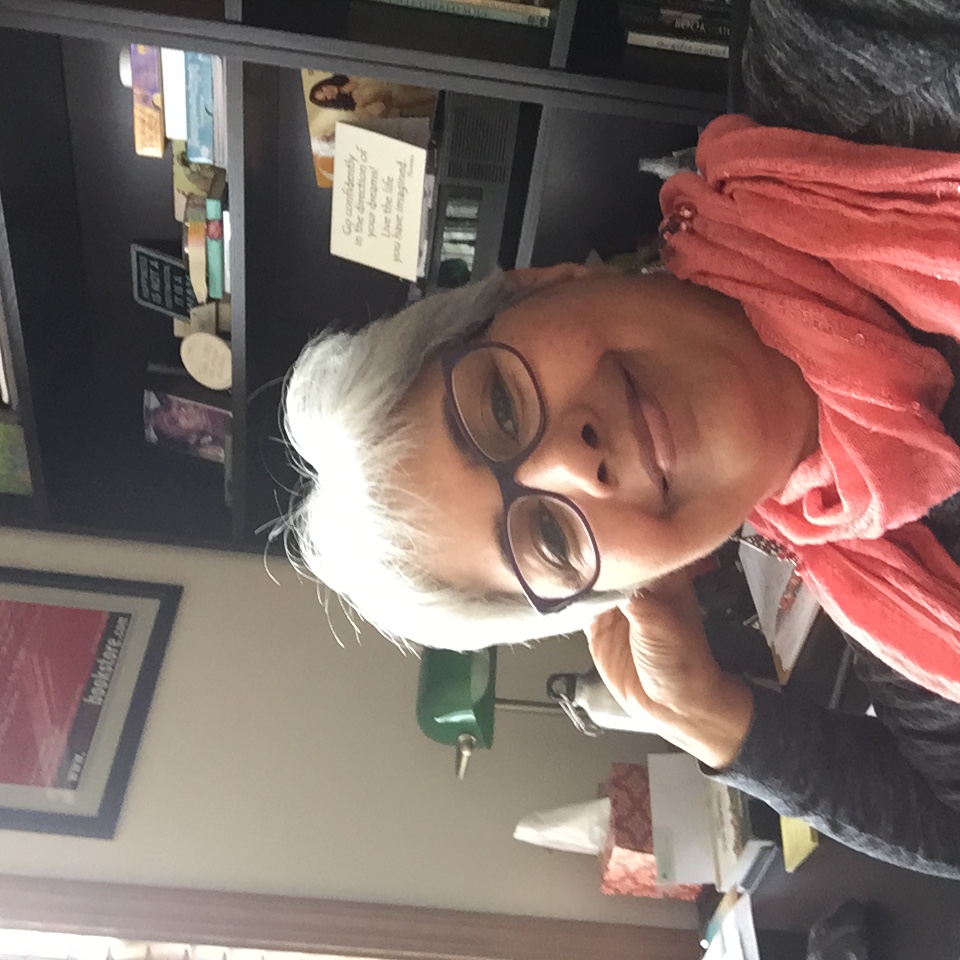Mary shuffles into the room on her walker, her steps slow and uncoordinated. She takes her place, as she does every Thursday afternoon, ready to travel back in time and share stories. Mary is one among fifteen ladies who forms a part of a weekly group I facilitate called My Life in Stories. I started this group in a retirement community back in 2009 as a brand-new immigrant in a foreign country, finding my place in a Chicago suburb, far away from Chennai, the home I’d known all my life.
Once upon a time…
If I were to describe my life in a single word, I’d choose the word story. It was my paternal grandma who opened the doors to the realm of my imagination and creativity. I sat beside her on sweltering summer afternoons, feeling the soft wrinkled folds of skin on her arm as she told me tales from Indian mythology. Of Krishna and Radha, Rama and the demon Ravana, of the fierce goddess Kali, and the god of new beginnings, Ganesha.
It was Grandma who fostered in me a deep and abiding love of story
Story shapes our life.
Story gives meaning to our journey.
Story is the container for our destiny.
The wise art of storytelling
As I applied for jobs during one of the worst economic recessions in history, it was storytelling that saved me. A part-time position opened up in a senior living community. It allowed me to create a space for seniors to share their life stories. For sixty minutes every week, a group of octogenarians and nonagenarians take center stage in my group. As they tell stories of lives lived in the war and depression era, their faces light up, their eyes shine.
Unfortunately, we live in a world where the elderly feel invisible a lot of the time. In our talk-text-and-message world of rapid-fire communication, their rambling narratives and measured pace, minuscule attention spans and confused memories have no place.
In my story circle, they are the heroes and heroines. Stories stored in long-term memories unfold, one sentence, one situation, one scene at a time. Stories of growing up dirt-poor during the Depression era; of crouching with pounding hearts in makeshift bomb shelters; of sending their men to war and committing to the war effort themselves; of evenings spent listening to the radio; of after-dinner dessert being nothing more ambitious than a dish of berries or peaches; of their moms laboring to get the perfect Shirley Temple curls, the rage of the time.
These stories are evergreen in their minds—even as they struggle to remember whether they took their post-lunch pill or transferred the wet wash to the dryer.
Something delightful happens in the room when someone forgets a minor detail. When Janice has trouble recalling the brand of butter that most families used back in the day, Virginia helps her out. That starts a discussion on butter churns, which leads to how they washed clothes using an old-fashioned wringer and the smell of sunshine on sheets. Each one helps the other connect the dots. They are threads in a tapestry, connected to a world they all inhabited.
For someone like me, a stranger to their culture and their world, it is living and breathing history. Now I know concentration camp and World war survivors; I know men who fought in these wars; I know women who raised police officers and fire-fighters. As a group of seniors become inspiring, heroic characters in their retellings, I watch history come alive.
It is a rich emotional experience. As they tell me tales of jukeboxes and ice cream fountains, I share stories of growing up in India, of customs and rituals that shaped my life, of rural and urban life, the reality of the haves and have-nots.
How sharing tales help
This time of shared life stories has multiple benefits that go far beyond the pleasure of community and connection.
Transmit life lessons to the younger generation
Eighty-plus years of living brings with it rich life lessons. Although the world of these seniors was significantly different from the one we inhabit, the themes and threads that run through life are always the same: the desire for happiness, a meaningful vocation, connected relationships, and less stress. Having travelled the path, elders have much wisdom to share on how to navigate life’s rocky terrain.
Mental health benefits
Storytelling is known to improve memory function in seniors. Recall, narration and connecting the dots strengthen areas of the brain which may otherwise atrophy. Added to this is the benefit of emotional nurturing as seniors feel a sense of belonging.
Social and emotional connections
When seniors move into a community, they often feel displaced from homes and neighborhoods they have known and loved. My group is a safe way for them to ease the loneliness of the transition as they find and form new friendships with others who are in similar shoes.
Connection to a common world
At a time when they can barely remember where they placed their walker, or how to get to a program venue, sharing stories of a world they remember helps them feel rooted. It was a time when they had real roles in life as mothers, wives, teachers, and nurses. Recalling that purposeful existence strengthens them.
The opportunity for a life review
As they review their lives from the perspective of time, many understand the mistakes they made and choices that led them down roads they may not have chosen to travel. It is a fresh opportunity to revisit some unpleasant stories and give them pleasant endings.
Growing old can be awfully lonely. Storytelling helps seniors know that their life mattered and continues to matter.


